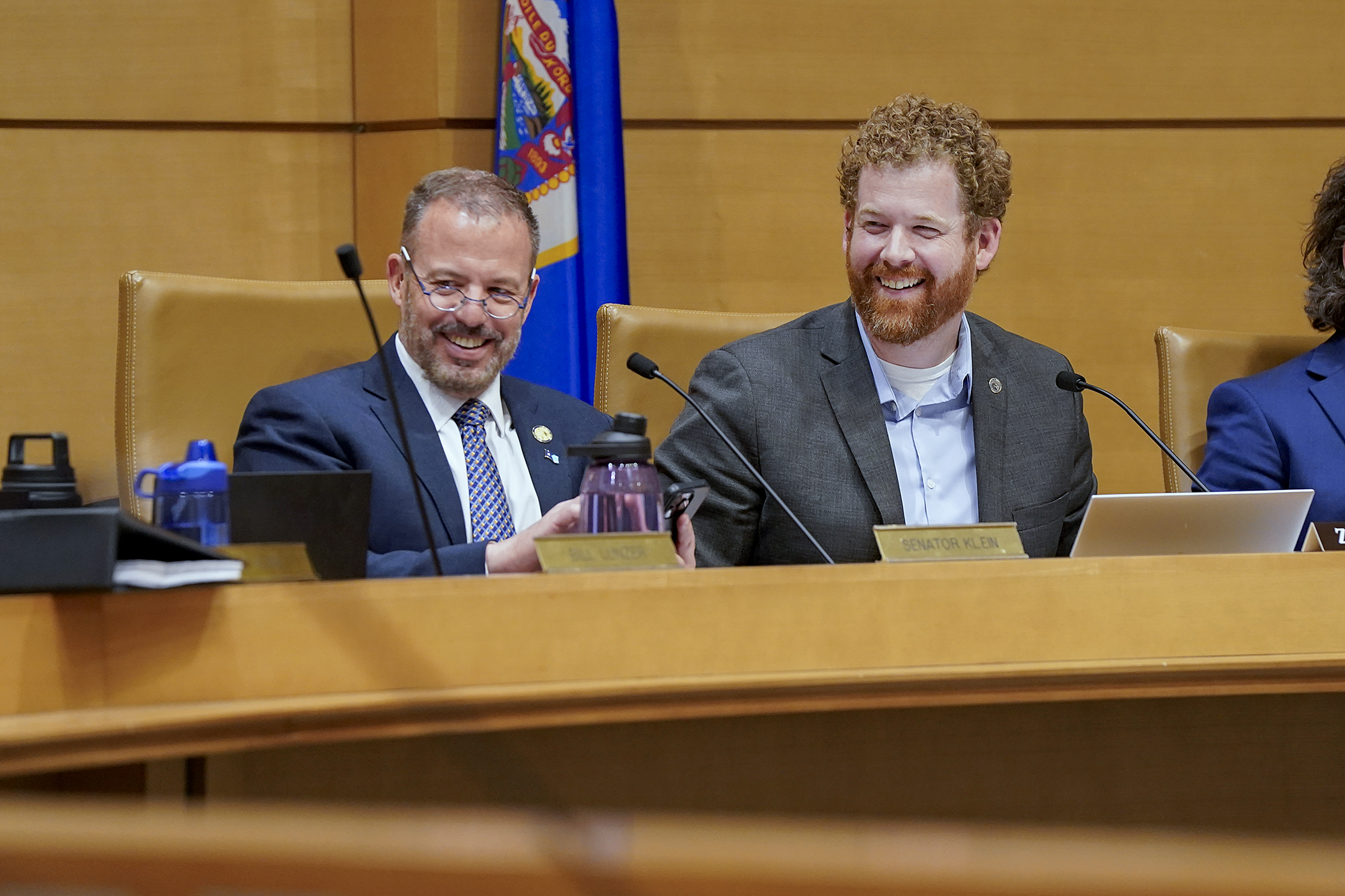Lawmakers strike deal on commerce policy, consumer protection package

Legislation that would beef up a host of consumer protection laws will head back to both bodies for their consideration and possible passage now that a conference committee worked out the differences on their respective commerce policy bills Wednesday.
The committee agreed on a package containing provisions ranging from enhancing protections against coerced debt, to establishing “net neutrality” rules, to restricting the sale of “duster” aerosol cans.
The conference committee report on HF4077/SF4097* now goes back to each body, where — if it’s passed as expected — it would go to the governor.
With co-chair Sen. Matt Klein (DFL-Mendota Heights) acting as emcee, co-chair Rep. Zack Stephenson (DFL-Coon Rapids) offered up motion after motion, guided by a side-by-side tracking sheet, to merge portions of HF4077, passed by the House April 15, and SF4097 passed by the Senate April 4.
After adopting more than a dozen, mostly technical amendments offered by Stephenson, the committee adopted the conference report, including the following provisions.
From the House
Noteworthy provisions from the House included in the report would:
- prohibit a health plan that covers physical or mental health services from excluding coverage for gender-affirming care;
- allow a religious organization to not cover some or all benefits for contraceptives or gender-affirming care if the organization has religious objections;
- establish “net neutrality” rules, such as prohibiting internet service providers from impairing or degrading traffic based on content;
- specify strict conditions on who can possess a used catalytic converter; and
- prohibit retailers from displaying a price that does not include all mandatory fees.
From the Senate
Noteworthy provisions from the Senate included in the report would:
- enhance the rights of students taking out student loans;
- prohibit the sale and possession of a phone case that reasonably appears to be a firearm;
- tighten regulations governing the bail bonds industry, including prohibiting soliciting bail bonds on the grounds of a prison or jail; and
- strengthening the disclosure rules for sellers of subscription services and how consumers can unsubscribe from those services.
From both bodies
Noteworthy provisions from both the House and Senate would:
- limit the sale of aerosol “dusters’ containing difluoroethane;
- strengthen restrictions on forced debt, such as making a violator civilly liable for the amount of an unlawful loan;
- require financial institutions to develop, implement, and maintain information security programs to protect customer data; and
- provide consumer protections for users of cryptocurrency or virtual currency ATMs.
Related Articles
Search Session Daily
Advanced Search OptionsPriority Dailies
Speaker Emerita Melissa Hortman, husband killed in attack
By HPIS Staff House Speaker Emerita Melissa Hortman (DFL-Brooklyn Park) and her husband, Mark, were fatally shot in their home early Saturday morning.
Gov. Tim Walz announced the news dur...
House Speaker Emerita Melissa Hortman (DFL-Brooklyn Park) and her husband, Mark, were fatally shot in their home early Saturday morning.
Gov. Tim Walz announced the news dur...
Lawmakers deliver budget bills to governor's desk in one-day special session
By Mike Cook About that talk of needing all 21 hours left in a legislative day to complete a special session?
House members were more than up to the challenge Monday. Beginning at 10 a.m...
About that talk of needing all 21 hours left in a legislative day to complete a special session?
House members were more than up to the challenge Monday. Beginning at 10 a.m...